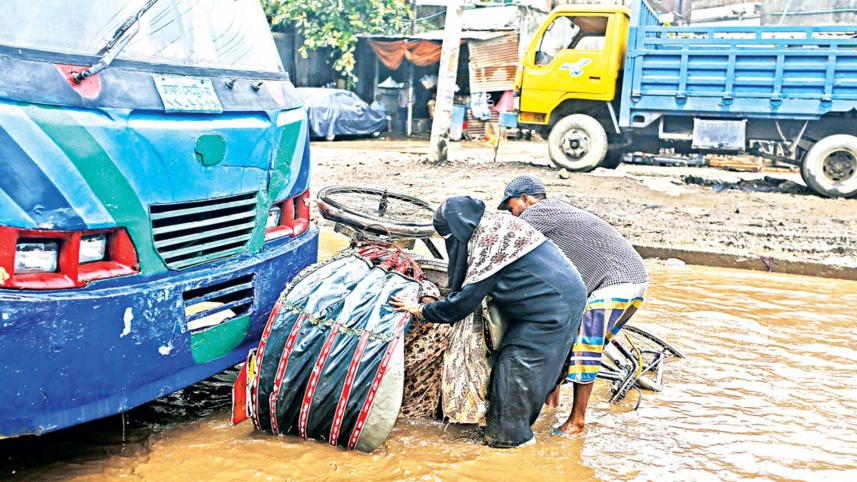Will our roads ever be safe?

The state of the road safety in Bangladesh is dismal at the moment, to say the least. And it includes the state of the roads too. Take, for instance, the Postogola-Chashara road. As reported by this daily, it's riddled with potholes—no big surprise there. But the real danger is when it rains and the road gets submerged in knee-deep water, making it impossible for vehicles to travel on it safely. As a result, as recently as last Tuesday morning, at least eight accidents occurred within the space of hours after autorickshaws, rickshaws and rickshaw vans slipped into the potholes. Not only do these accidents cause nuisance for vehicle owners in the form of repair costs, but they also leave passengers and drivers severely injured.
This is but one example of the state of road safety in Dhaka division. According to police data, there has been an increase of at least 40 percent in both accidents and deaths on the country's roads till July this year, compared to the same period last year. The highest number of accidents in a single month was 543 in May. This was when public transport was hard to come by due to Covid-19-related restrictions from the government, and people depended on unsafe modes of transportation (such as easy bikes and motorcycles) to rush home for Eid. But even during regular times, accidents on our roads remain a common phenomenon.
For those expecting safer roads, the introduction of the Road Transport Act in 2018 offered momentary hope, but even after three years, it remains largely ineffective, and still in a draft form being ping-ponged between the BRTA and the law ministry. Besides non-implementation of the act, the pending amendments signal the authorities' prioritisation of transport owners and associations over the lives of people on the roads. The current draft of the law, if amendments take place along that line, shows that punishment or fine under at least 14 sections would be reduced. The law will also lose its jurisdiction to hold a driver responsible for causing injuries by reckless and negligent driving; it will only have the jurisdiction if someone dies. If the purpose of the law is to reduce the number of accidents, why make such concessions that do nothing to hold the drivers accountable?
As if such concessions are not enough, the government has recently waived late fines for vehicles failing to update documents on time. Such waivers, coupled with the delays in forming rules under the Road Transport Act, cannot help but be seen as the results of the influence that transport associations have over the government. Today, on the National Road Safety Day, authorities must realise that their duty is to keep the roads safe for the public. We would urge the government to be strict about the speedy finalisation of the Road Transport Act and to ensure its effective implementation. The whims of transport association owners must not prevent the safe travelling of the general people.



 For all latest news, follow The Daily Star's Google News channel.
For all latest news, follow The Daily Star's Google News channel.
Comments